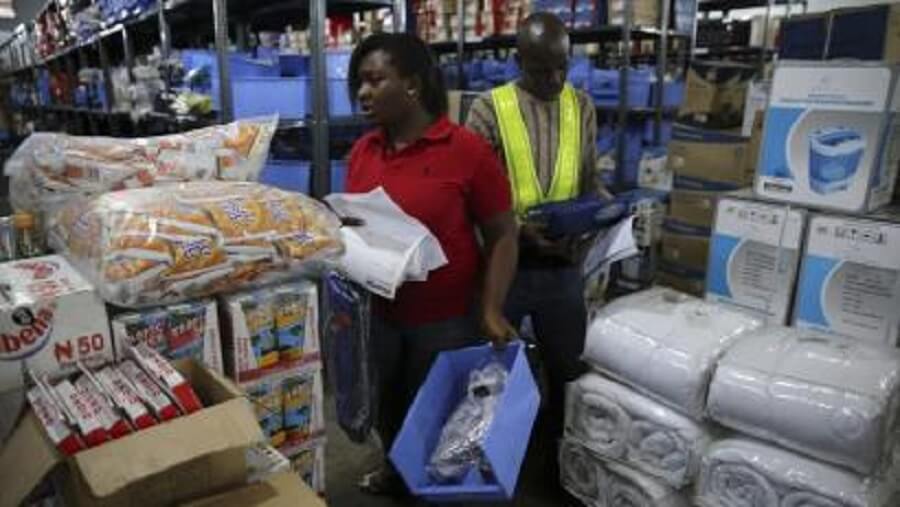The appetite of Nigerians for online transactions has increased over time showing improved market methods employed by e-commerce businesses.
Nigeria’s e-commerce spending estimated at $12bn, is projected to grow to $75bn in revenues per annum by 2025.
Advertisement
The outbreak of Covid-19 and the subsequent lockdown accelerated the adoption of e-commerce in most countries including Nigeria.
In Nigeria, banks and other financial institutions followed the trend by providing electronic payment means that would allow seamless payment for deals reached online.
But most online buyers prefer online businesses with physical stores or at least a verifiable pickup store to guarantee their purchases.
This challenge is peculiar to small scale business owners or startups.
Advertisement
Some of the businesses have expressed how owning online space to market and sell their products has helped them.
The proprietor of Dew Clothing, Rosemary runs an online and offline store located in Benue State.
She told THE WHISTLER that she leverages on her online platform to draw clients to her business in Benue.
She said running an online store has not been easy, especially the aspect of convincing her clients who live in far states.
Rosemary said, ” I have a physical store in Benue state, Makurdi. Basically, most of my clients are online based. I mean they found us online and as such wouldn’t want to go through the stress of walking into the store. Others prefer to come in physical to see what they are buying and have a feel of it and most importantly fit into it to make sure it’s their perfect size.
Advertisement
“You are dealing with people that have never met or seen you physically. So, the most important thing is getting their attention and gaining their trust. This is where the work comes in.”
But Sa’adat Onize Morgan, the owner of Ilorin based SouthPaw NG, a fashion outfit told THE WHISTLER that she wants to support her online store with a physical store because some online buyers are scared of being duped.
Morgan sells fabrics and makes an average of N15,000 weekly and N60,000 monthly, but she believes her income could improve if she has a store.
She said she is considering having a small store “to be able to satisfy more customers. This is because they seem more secure shopping in a store than shopping online and it also give you a chance to show off your customer service.”
Another online store owner, Tracy who is an Abuja based event planner and cloth vendor started selling online in 2018.
The business woman makes over N50,000 as monthly profit, but she is also faced with the problem of trust.
Advertisement
Tracy said, “I really want to own a physical store because it helps customers trust you when they go to your online page and see you own a store and it helps in making more sales.”
Lisa, who sells human hair in Ibadan also relies on her online store to market her product.
She runs an Instagram page and a website where she advertises her products.
Lisa said the business is profitable but added that she sometimes relies on sponsored advert to get customers.
Lisa pays N5,000 to reach about 1,000 prospective clients weekly, adding that the benefit outweighs the expenses she makes in advertising.
According to her, she makes N300,000 to N500,000 weekly and around N2m in a month.
Lisa also admitted that she is confronted with the challenge of making her online buyers believe that her business is genuine.
Lisa said, “I sometimes take the risk of sending hairs worth around N185,000 to my customers to confirm the texture and quality before payment. If I had a physical store, those customers would have trusted my business better.”



